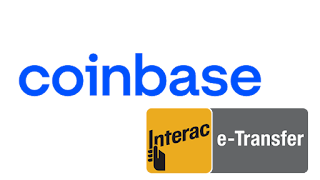People are drawn to purchasing a house for a range of reasons, including the desire for more space, a backyard for the dog, investment opportunities, or simply because they want to. And while it's wonderful for them, you don't have to beat yourself with someone else's yardstick. The one-size-fits-all advice ignores the reality of today's Canadian housing market.
Misconceptions about renting vs. owning, you've probably heard that renting is essentially a waste of money. Or that owning a home is the only worthwhile investment. However, those assertions are based on some shaky assumptions, such as whether you are guaranteed to make money from your home and that other investment would not make you as much or more. Canadians are entitled to better advice.
Aside from mortgage insurance, homeowners insurance, interest, and property taxes, owning a home entails a number of non-recoverable costs. And if something breaks, you have to fix it yourself rather than calling the landlord. All of this adds up, and you will never see a return on your investment.
The basis that owning is better than renting also assumes that homeownership is your top priority, without taking into consideration the other goals you may have for your money or what you want to do with your life.
When you pay a reasonable rent, you free up a lot of money for other pursuits that can be just as financially rewarding as owning your own home, bellow are some examples.
Purchasing Cryptocurrency
Another popular reason for investing in cryptocurrency is the desire for a dependable, long-term store of value. Unlike fiat money, most cryptocurrencies have a finite supply that is limited by mathematical algorithms. This prevents any political body or government agency from diluting their value through inflation. With incredibly low fees, you can instantly exchange bitcoin for cash or assets such as gold. Bitcoin's high liquidity makes it an excellent investment vehicle. Staking rewards are a type of income paid to cryptocurrency owners who help regulate and validate the transactions of a cryptocurrency. In this regard, staking rewards are analogous to dividends or interest on a savings account.
Invest in the Stock Market
Stocks can be an important component of your investment portfolio. Investing in various companies can help you build your savings, protect your money from inflation and taxes, and maximise your return on investment. One of the reasons people choose to invest in dividend stocks is the potential for a steady stream of income. Another reason is the tax credits that Canadians may be entitled to for their dividends. The Dividend Reinvestment Plan is a benefit for many dividend stock investors (DRIP).
Establishing a Business
Owning your own business has numerous advantages. Having your own business gives you the freedom to make your own decisions. There will be no more boss watching over your shoulder or nitpicking everything you do. If your business is successful, you could see a significant return on your initial investment. Clearly, achieving financial freedom and success requires hard work, but it is possible. You may still be able to buy a house after your business has been successful. This is one approach to achieving both objectives.
Peer-to-Peer Financing
Peer-to-peer lending services such as GoPeer and iscripts allow you to invest in loans to other people. You can contribute small amounts to fund a loan requested by a customer and then be repaid with interest as the loan is repaid.
REITs (Real Estate Investment Trusts)
Purchasing a REIT, a clever variation on the above concept, allows you to become a real estate investor while avoiding many of the responsibilities listed above. Furthermore, joining a real estate investment trust can get you into commercial real estate with a much lower capital commitment than buying an office building or a shopping centre outright. The benefits of this investment include diversification, as your capital is spread across a variety of properties rather than being tied up in just one. REITs are required by law to pay out 90% of their earnings in dividends, which can mean a steady stream of passive income even as the value of your investment grows.
Your investment portfolio should be well-balanced. This implies that you should consider a wide range of stocks, but it also implies that you can invest in non-stock investment vehicles. Consider where your money would grow the fastest based on your risk tolerance. Keep in mind that the greater the risk, the greater the potential reward.









